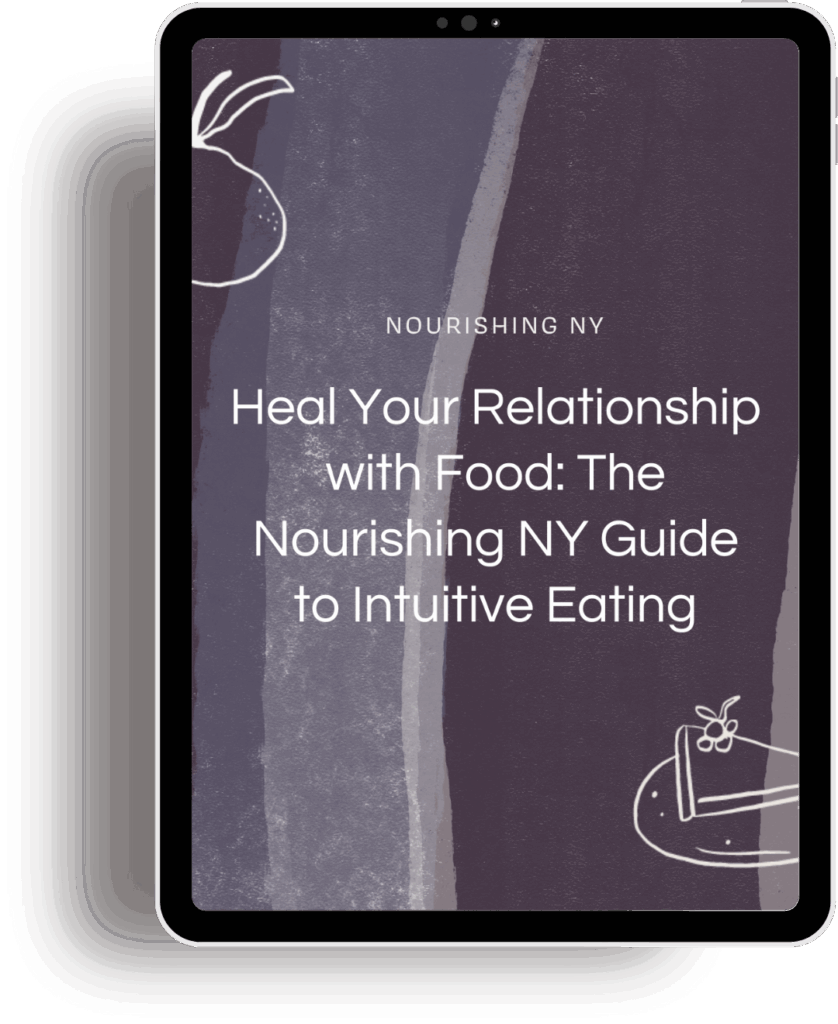An Anti-Diet Approach to Passover
Eating delicious food and spending time with family are typical characteristics of Passover. On this Jewish holiday, it is prohibited to eat five grains: wheat, barley, rye, oats, and spelt. However, it is permitted and encouraged to eat wheat in an unleavened form called matzah. Matzah is a crisp, cracker-like bread made of only flour and water. Many Jews also celebrate this holiday with a ritualistic food ceremony that includes wine, bitter herbs, and hard-boiled eggs.
No matter your family’s customs and traditions surrounding food on Passover, you deserve food freedom on the holidays and every day of the year.
On Passover, we often get so caught up in what we are prohibited from eating that we forget about all the foods that are available to us! While matzah is enjoyed by many, its binding powers can often lead to constipation and discomfort. Increasing your water intake on Passover will help you avoid this unwanted side effect of matzah. Also, choosing fiber-rich foods like whole grains (whole wheat matzah), fruits, and vegetables will help minimize constipation.
It is important yet difficult to strike this food balance on the holidays. Obsessing over eating enough fiber can take away from your Passover experience. However, completely forgoing your nutrition needs can also hurt your holiday fun. That’s why intuitive eating is so important. Choose foods that will make you happy while honoring your health. And remember- one holiday or unhealthy meal will not drastically hurt your health.
Whether or not you abstain from leavened grains on Passover, this holiday is a great time to explore some new foods and recipes! Here I highlight some of the most common foods eaten on Passover.
1. Matzo Ball Soup – This is a delicious way to recycle any leftover matzah scraps, or you can purchase ground matzah meal as well. This soup is a great cap-off to the winter season! Adding chicken to this soup will provide you with a delicious blend of protein, fiber, vitamins, and minerals.
2. Brisket – Pickled, sliced, roasted- you name it. Meat is a typical center of Jewish meals and a great source of iron, riboflavin, niacin, pantothenic acid, vitamin B6, and vitamin B12.
3. Haroset – This fruit and nut paste is a fan-favorite at Passover meals. Many European Jews mix apples, walnuts, and red wine to create Haroset, while Middle Eastern Jews use dates, walnuts, and red wine. Either way, you can’t go wrong with fruit and wine! Dates also offer a nice amount of fiber that can counterbalance the effects of matzah.
4. Dessert – Flourless chocolate cake, coconut macaroons, and jelly rings are popular on Passover. Baking without flour can be a difficulty but it’s an opportunity to get creative! Remember- flourless desserts are not automatically healthier. Practice self-care by giving yourself a wide variety of foods instead of sticking to what some may think is the healthiest.
It is so important you feel comfortable on the holidays. You should notice what foods sound good while also noticing how foods make you feel. Aim for balancing your intake of the macronutrients: protein, carbohydrates, and fat. This balance helps with energy levels, satiety, and satisfaction.
For those who strictly observe Passover and its dietary restrictions, you still have food freedom! There are so many permitted foods that will contribute to a balanced meal. Fruits, vegetables, seeds, and most nuts are completely permitted. Some Jewish cultures also permit eating rice and legumes.
If it feels challenging to strike a food balance, know that you are not alone. This approach is super nuanced and takes some getting used to. There’s no need for cheat days or cheat holidays when food freedom applies every day of the year! Happy holidays!



